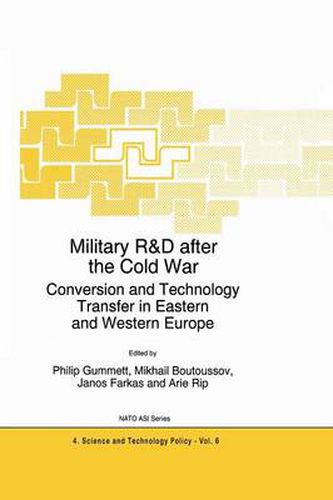Readings Newsletter
Become a Readings Member to make your shopping experience even easier.
Sign in or sign up for free!
You’re not far away from qualifying for FREE standard shipping within Australia
You’ve qualified for FREE standard shipping within Australia
The cart is loading…






This title is printed to order. This book may have been self-published. If so, we cannot guarantee the quality of the content. In the main most books will have gone through the editing process however some may not. We therefore suggest that you be aware of this before ordering this book. If in doubt check either the author or publisher’s details as we are unable to accept any returns unless they are faulty. Please contact us if you have any questions.
Countries establish defence industries for various reasons. Chief among these are usually a concern with national security, and a desire to be as independent as possible in the supply of the armaments which they believe they need. But defence industries are different from most other industries. Their customer is governments. Their product is intended to safeguard the most vital interests of the state. The effectiveness of these products (in the real, rather than the experimental sense) is not normally tested at the time of purchase. If, or when, it is tested, many other factors (such as the quality of political and military leadership) enter into the equation, so complicating judgments about the quality of the armaments, and about the reliability of the promises made by the manufacturers. All of these features make the defence sector an unusually political industrial sector. This has been true in both the command economies of the former Soviet Union and its satellites, and in the market or mixed economies of the west. In both cases, to speak only a little over-generally, the defence sector has been particularly privileged and particularly protected from the usual economic vicissitudes. In both cases, too, its centrality to the perceived vital interests of the state has given it an unusual degree of political access and support.
$9.00 standard shipping within Australia
FREE standard shipping within Australia for orders over $100.00
Express & International shipping calculated at checkout
This title is printed to order. This book may have been self-published. If so, we cannot guarantee the quality of the content. In the main most books will have gone through the editing process however some may not. We therefore suggest that you be aware of this before ordering this book. If in doubt check either the author or publisher’s details as we are unable to accept any returns unless they are faulty. Please contact us if you have any questions.
Countries establish defence industries for various reasons. Chief among these are usually a concern with national security, and a desire to be as independent as possible in the supply of the armaments which they believe they need. But defence industries are different from most other industries. Their customer is governments. Their product is intended to safeguard the most vital interests of the state. The effectiveness of these products (in the real, rather than the experimental sense) is not normally tested at the time of purchase. If, or when, it is tested, many other factors (such as the quality of political and military leadership) enter into the equation, so complicating judgments about the quality of the armaments, and about the reliability of the promises made by the manufacturers. All of these features make the defence sector an unusually political industrial sector. This has been true in both the command economies of the former Soviet Union and its satellites, and in the market or mixed economies of the west. In both cases, to speak only a little over-generally, the defence sector has been particularly privileged and particularly protected from the usual economic vicissitudes. In both cases, too, its centrality to the perceived vital interests of the state has given it an unusual degree of political access and support.